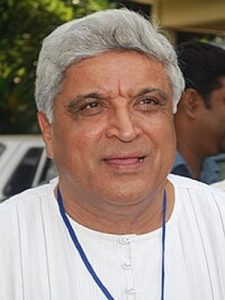 Introduction
Introduction
Eminent poet and lyricist Javed Akhtar once stated, It won’t be incorrect if I say Rafi Sahab was the first unique singer in the entire world who redefined and reshaped playback singing. This sentiment. echoed in his documentary Classic Legends: Mohammad Rafi, captures the essence of Mohammad Rafi’s unparalleled contribution to the world of playback singing.
Let’s delve into Rafi’s groundbreaking contributions to playback singing, his ability to adapt his voice to suit diverse actors and situations, and his collaboration with various music directors that shaped the golden era of Hindi cinema music.
The Evolution of Playback Singing
With the end of the silent movie era, a new trend emerged in global cinema — actors who could sing became the preferred choice for lead roles. Hindi cinema witnessed the rise of actor-cum-singers like KL Saigal, Noorjehan, Suraiya, and others. This paved the way for playback singing, where professionally trained singers lent their voices to on-screen actors during studio recordings.
Mohammad Rafi’s Insightful Approach
As the shift to playback singing occurred, Mohammad Rafi discerned a crucial distinction between stage performances and studio recordings. On stage, a singer’s identity is forged through live performances, but in the studio, the actor on screen takes precedence, overshadowing the singer.
Rafi identified a unique opportunity and applied the innovative approach to modulate his voice according to the on-screen actor’s vocal characteristics and the situation depicted. This God-sent ability made him the world’s first playback singer and it opened a new chapter in playback singing, setting a standard others would strive to emulate.
Analyzing Voice Qualities for Different Actors
Rafi’s brilliance shone through in his ability to tailor his voice for different actors and scenarios. For instance, songs like Mere Mehboob Tujhe Meri Mohabbat Ki Kasam … (Mere Mehboob, 1963) and Abhi Na Jaao Chhodkar … (Hum Dono, 1961) may share a similar tempo and soft rendition, but the distinctive voice quality distinguishes the former as sung for Rajendra Kumar and the latter for Dev Anand.
Even when singing for the same actor in different situations, Rafi ensured his voice aligned with the on-screen character’s demands. This is evident in songs like Aaj Ki Raat Mere Dil Ki Salami Lele … (Ram Aur Shyam, 1967) and Nain Lad Jayi Hain Toh Manwa Maan … (Ganga Jamuna, 1961), both sung for Dilip Kumar, where Rafi adapts his voice to suit the character’s dignity or simplicity in first song while in the second his voice reflected the on-screen character of a simple villager.
Diverse Styles for Various Music Directors
Further showcasing his versatility, Rafi tailored his singing style to match the preferences of different music directors.
Mohammad Rafi flourished rendering Music Composer Naushad Ali’s compositions that were rooted in semi-classical, ghazal, and folk genres, depicted traditional India.
Shankar-Jaikishan’s orchestral compositions pushed boundaries, while OP Nayyar’s rhythm-centric tunes showcased a different musical signature.
Rafi’s collaborations with music directors like Jaidev, Roshan Lal, and Madan Mohan reflected the depth of his talent to match their varied demands.
His rendition of Abhi Na Jaao Chhodkar … in Jaidev’s composition showcased an exceptional synergy with Devanand’s on-screen expressions.
Laxmikant-Pyarelal Duo holds the distinction of recording maximum number of songs by Mohammad Rafi. Out of their 369 compositions for Rafi Sahab, 186 were solo, with handful of them earning accolades.
Rafi’s ability to adapt to each director’s unique style set him apart.
Legacy and Continued Growth
Despite reaching unprecedented heights in his singing career, Mohammad Rafi remained a shy, simple, quiet, and soft-spoken individual with huge heart for underprivileged.
His untimely demise marked the end of an era, but his legacy lives on as audiences continue to recognize and celebrate the unparalleled greatness of this legendary playback singer. It’s evident that the impact of Mohammad Rafi on the world of music continues to grow with each passing day and will endure for generations to come.
Conclusion
In retrospect, Mohammad Rafi’s contributions to playback singing are nothing short of revolutionary and immeasurable. His ability to adapt to different actors, music directors, and musical styles showcased a level of versatility that remains unmatched.
As we celebrate the legacy of this musical pioneer on his 99th birth anniversary, one thing is guaranteed: Mohammad Rafi is set to live on for the centuries to come, right in the heart, mind and very soul of his fans.
Next article will outline the Tribute by Bollywood Actors to Rafi Sahab.
Courtesy: The Documentary, Classic Legends: Mohammed Rafi.

 Introduction
Introduction